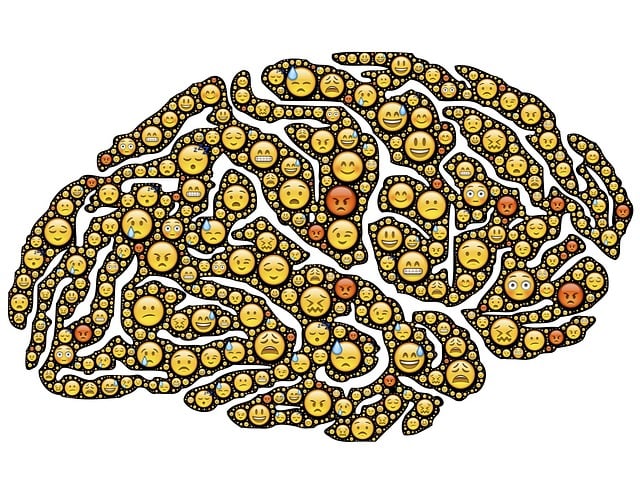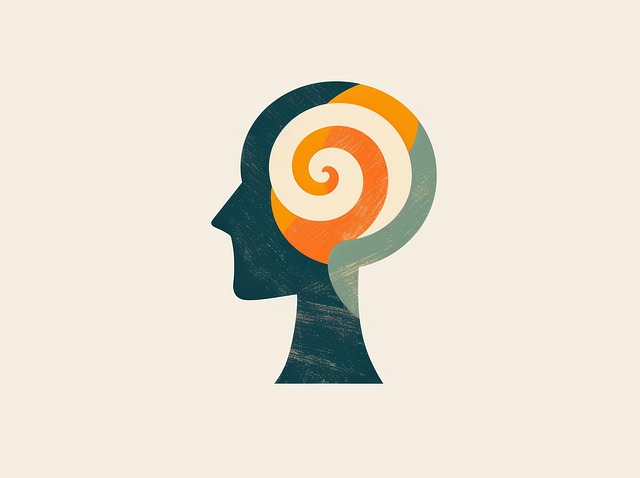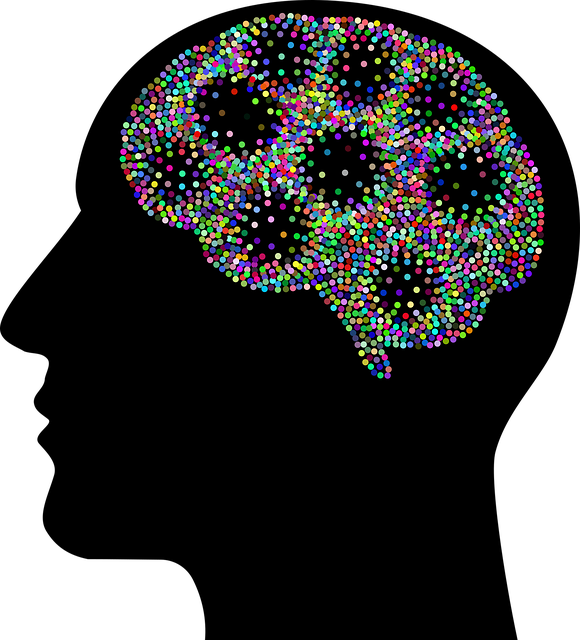Mental health data analysis is vital for developing tailored interventions like Social Skills Training for youth and Burnout Prevention strategies for adults. This involves integrating quantitative assessments, qualitative patient narratives, and observational notes from clinical settings, including Golden ADD-ADHD evaluations. Advanced analytics tools help uncover patterns, informing public awareness campaigns to reduce stigma. Golden ADD-ADHD evaluations provide a comprehensive framework for treating attention disorders by identifying strengths and weaknesses through standardized tests, interviews, and observations, leading to personalized Mental Health Education Programs. Regular evaluation and data tracking, using standardized assessment tools and digital monitoring, ensure therapy plans remain relevant and effective. Analyzing this data enhances therapy outcomes by guiding interventions and personalizing treatment based on specific needs.
Mental health data analysis is a powerful tool for understanding and improving patient care, especially in the realm of attention-deficit/hyperactivity disorder (ADD-ADHD). This article delves into the intricacies of mental health data interpretation, offering insights on four key aspects. We explore ‘Understanding Mental Health Data’, focusing on the foundation of analysis. Golden ADD-ADHD evaluations are dissected to unlock valuable insights into attention disorders. Additionally, we provide a step-by-step guide to therapy tracking and progress measurement. Finally, learn how to interpret results, recognize patterns, and enhance ADD-ADHD therapy with data-driven decisions.
- Understanding Mental Health Data: The Foundation of Analysis
- Golden ADD-ADHD Evaluations: Unlocking Insights into Attention Disorders
- Therapy Tracking and Progress Measurement: A Step-by-Step Guide
- Interpreting Results: Recognizing Patterns and Trends
- Enhancing Care with Data-Driven Decisions in ADD-ADHD Therapy
Understanding Mental Health Data: The Foundation of Analysis

Understanding Mental Health Data is the bedrock upon which effective analysis and interpretation stand. This involves meticulously collecting and examining information related to various aspects of mental well-being, including symptoms, behaviors, and responses to treatments like Golden ADD-ADHD evaluations and therapy. Such data often includes quantitative measures from assessments, qualitative insights from patient narratives, and observational notes from clinical settings.
A comprehensive approach to mental health data analysis leverages tools from statistics and analytics to uncover patterns and trends, enabling the development of tailored interventions such as Social Skills Training for children and adolescents, or Burnout Prevention strategies for working adults. Furthermore, enhancing Public Awareness Campaigns Development through data-driven insights can foster a culture of open dialogue and reduce stigma associated with mental health issues.
Golden ADD-ADHD Evaluations: Unlocking Insights into Attention Disorders

Golden ADD-ADHD Evaluations offer a powerful tool for unraveling the complexities of attention disorders. By employing evidence-based methods and advanced assessment techniques, these evaluations provide therapists with valuable insights into an individual’s cognitive functioning, behavioral patterns, and emotional responses. Through comprehensive analysis, therapists can tailor interventions to address specific challenges, enhancing the effectiveness of ADD-ADHD therapy.
This process involves meticulous data collection, including standardized tests, interviews, and observation, to identify strengths and weaknesses associated with attention issues. The insights gained enable mental health professionals to design personalized Mental Health Education Programs that focus on promoting Emotional Well-being. Additionally, these evaluations contribute to building resilience by equipping individuals with strategies to manage symptoms and navigate daily life more effectively.
Therapy Tracking and Progress Measurement: A Step-by-Step Guide

Therapy tracking and progress measurement are essential components of any effective treatment plan, especially for conditions like ADD/ADHD where consistent evaluation is key to success. Here’s a step-by-step guide to help professionals navigate this process:
1. Define Measurable Goals: Begin by establishing clear, achievable goals tailored to the individual’s needs. These goals should focus on specific areas of improvement, such as emotional regulation or task completion, aligning with the desired outcomes from mental health education programs design.
2. Choose Appropriate Tools: Utilize standardized assessment tools and measures designed for ADD/ADHD evaluations. These can include rating scales, behavioral observations, and self-report questionnaires to track progress over time. Consider incorporating digital tools that offer structured yet flexible monitoring options.
3. Regular Data Collection: Consistency is crucial. Schedule regular therapy sessions to collect data at defined intervals, ensuring a comprehensive understanding of the client’s progress. This could involve weekly or biweekly check-ins, depending on the individual’s needs and response to treatment.
4. Standardized Documentation: Maintain detailed records of each session, including observations, discussions, and agreed-upon actions. Standardized documentation allows for consistent tracking and facilitates a holistic view of the client’s journey. It also enables resilience building by providing a reference point for future challenges and successes.
5. Analyze and Interpret Data: Regularly review collected data to identify patterns and trends. Look for improvements or areas that require additional focus. This step is where the true value of the data lies—it guides therapy direction, ensuring the treatment plan remains relevant and effective.
6. Adjust Treatment Plan: Based on data analysis, collaboratively adjust the treatment strategy with the client. This iterative process empowers individuals to take ownership of their progress while fostering emotional regulation skills.
Interpreting Results: Recognizing Patterns and Trends

When analyzing mental health data, particularly from evaluations like Golden ADD-ADHD therapies, recognizing patterns and trends is key to interpreting results effectively. Professionals should look beyond individual scores and focus on the narrative they paint. For instance, consistent high ratings in impulsivity across multiple sessions might suggest a need for targeted interventions, while fluctuations in anxiety levels could indicate the effectiveness of recent Compassion Cultivation Practices or Mindfulness Meditation techniques introduced during therapy.
By identifying these patterns, mental health practitioners can make informed decisions about adjusting treatment plans. For example, if data reveals a strong correlation between improved mindfulness and reduced ADHD symptoms, it becomes clear that integrating practices like meditation into therapy is proving beneficial. This insight allows for more personalized approaches, ultimately enhancing the potential for Anxiety Relief and positive outcomes in ADD-ADHD evaluations.
Enhancing Care with Data-Driven Decisions in ADD-ADHD Therapy

In the realm of ADD-ADHD therapy, data analysis has emerged as a powerful tool to enhance care and improve patient outcomes. By leveraging Golden ADD-ADHD evaluations, therapists can gain valuable insights into an individual’s unique challenges and strengths, marking a significant shift from traditional one-size-fits-all approaches. This data-driven decision-making process allows for the customization of therapy plans, ensuring interventions are tailored to meet specific needs. For instance, mental wellness coaching programs developed based on these evaluations can target areas such as resilience building and burnout prevention, fostering a more effective support system.
Furthermore, regular analysis enables therapists to track progress over time, adjust strategies as needed, and integrate new research findings. This continuous improvement cycle not only optimizes the therapy process but also reinforces the overall mental wellness coaching programs. As a result, patients with ADD-ADHD can expect more personalized, efficient, and ultimately successful treatment journeys, leading to better quality of life and enhanced daily functioning.
Mental health data analysis is a powerful tool for understanding and enhancing therapeutic outcomes, especially in the treatment of ADD-ADHD. By utilizing structured evaluations like Golden ADD-ADHD Assessments and implementing systematic therapy tracking, professionals can gain valuable insights into patient progress. Interpreting these data allows for recognizing patterns and making informed decisions to tailor treatments, ultimately improving care and quality of life for individuals navigating attention disorders. This data-driven approach is a game-changer in ADD-ADHD therapy, ensuring that each step of the healing process is measured, effective, and guided by concrete evidence.









